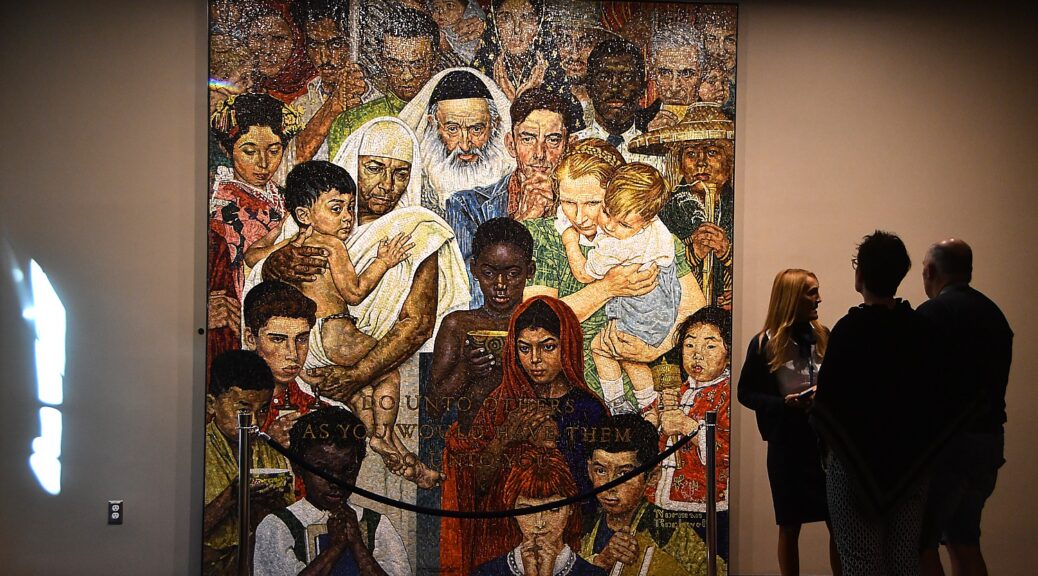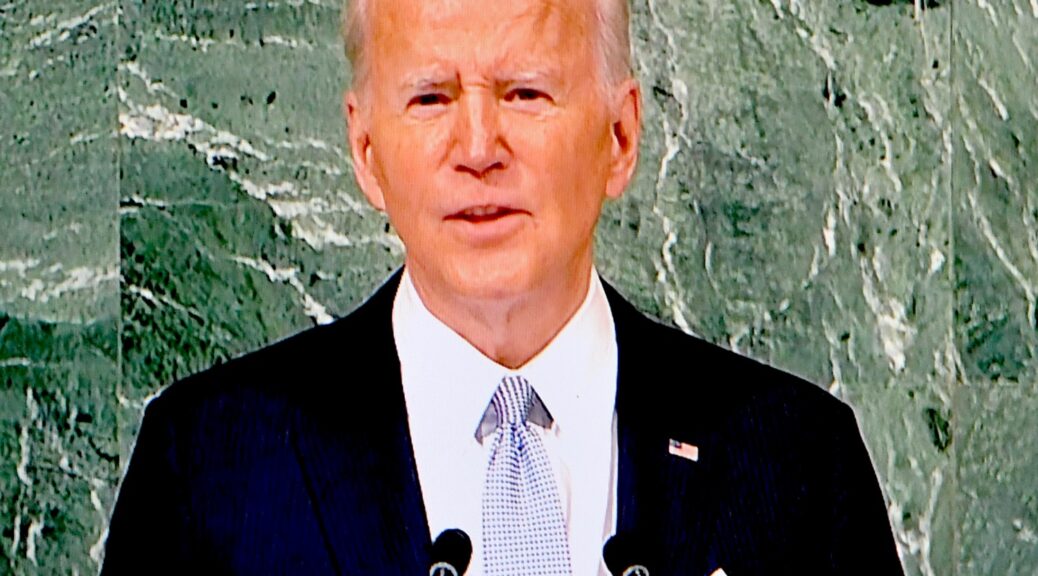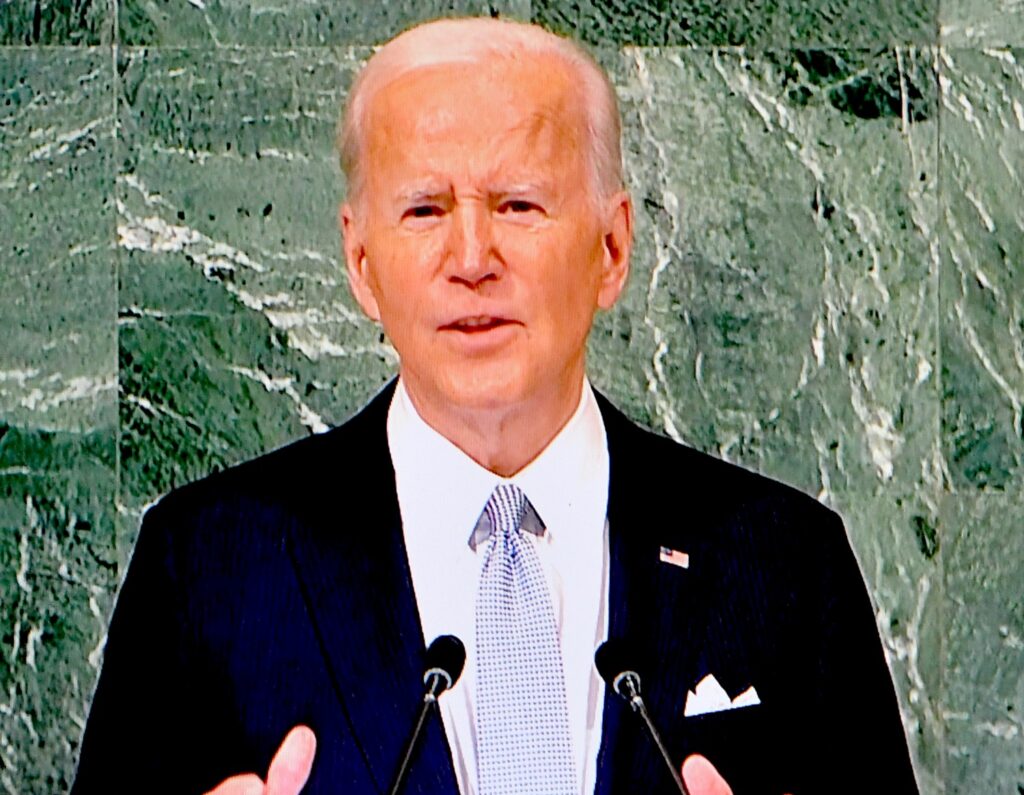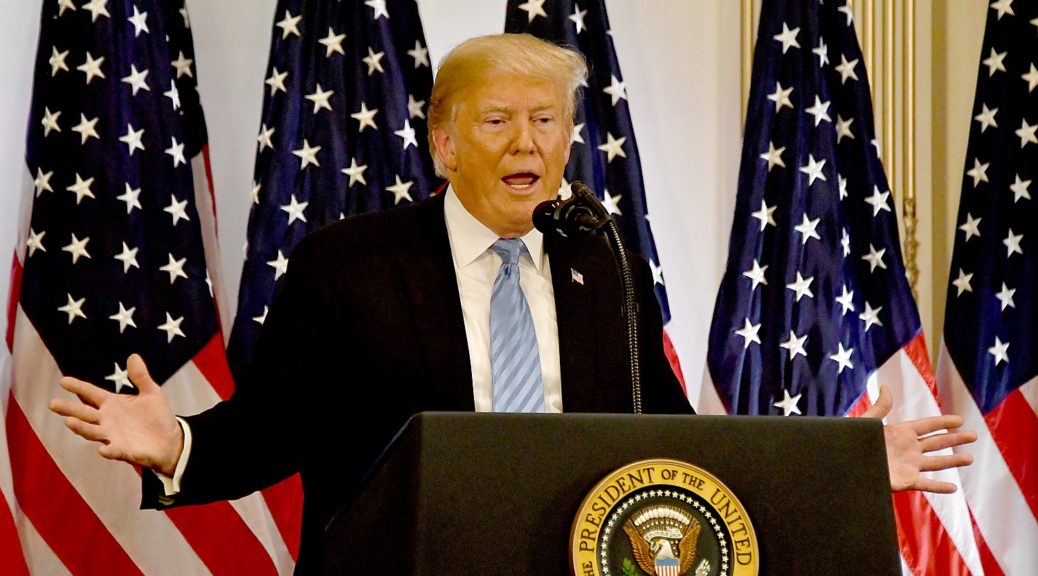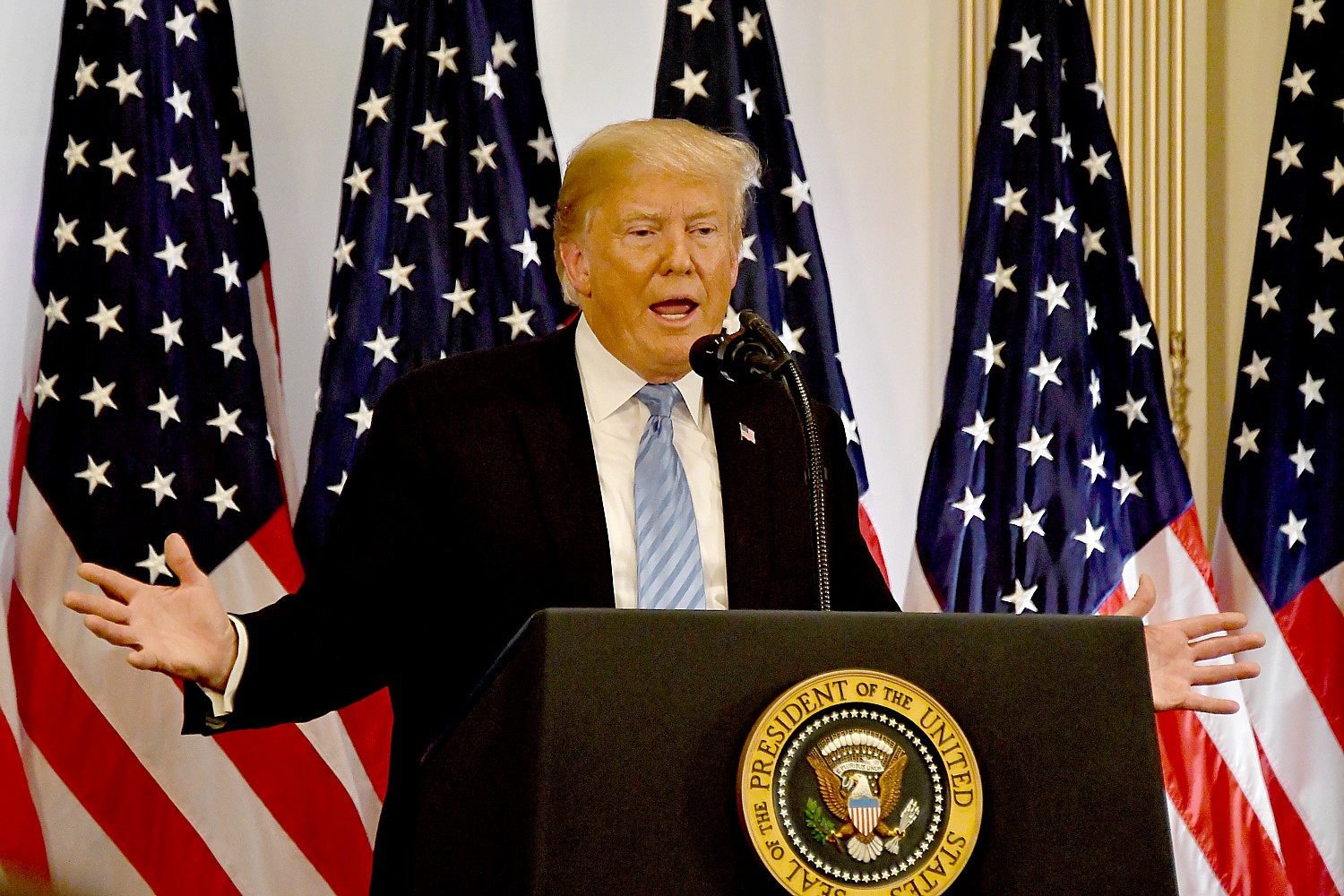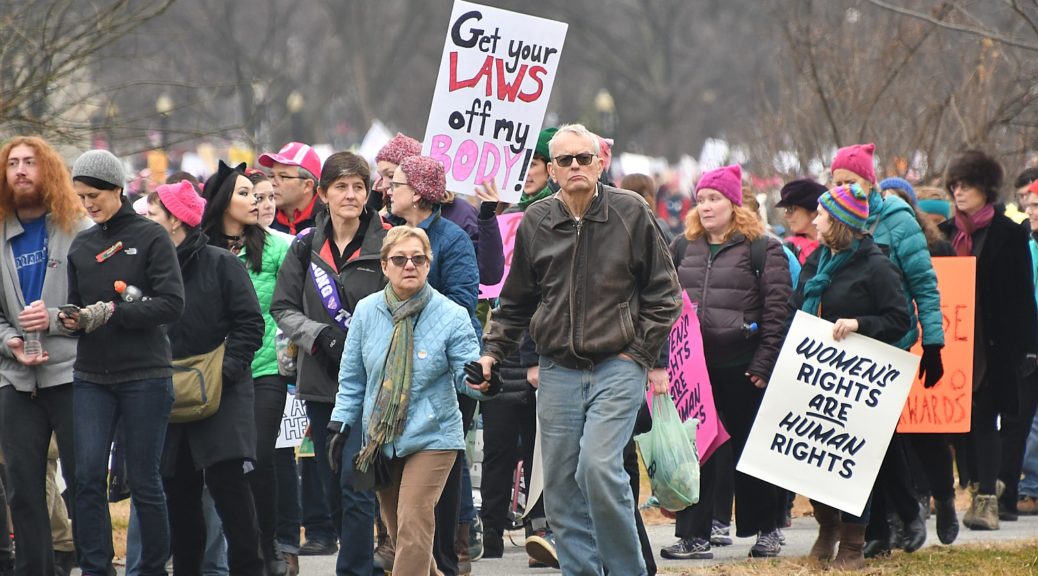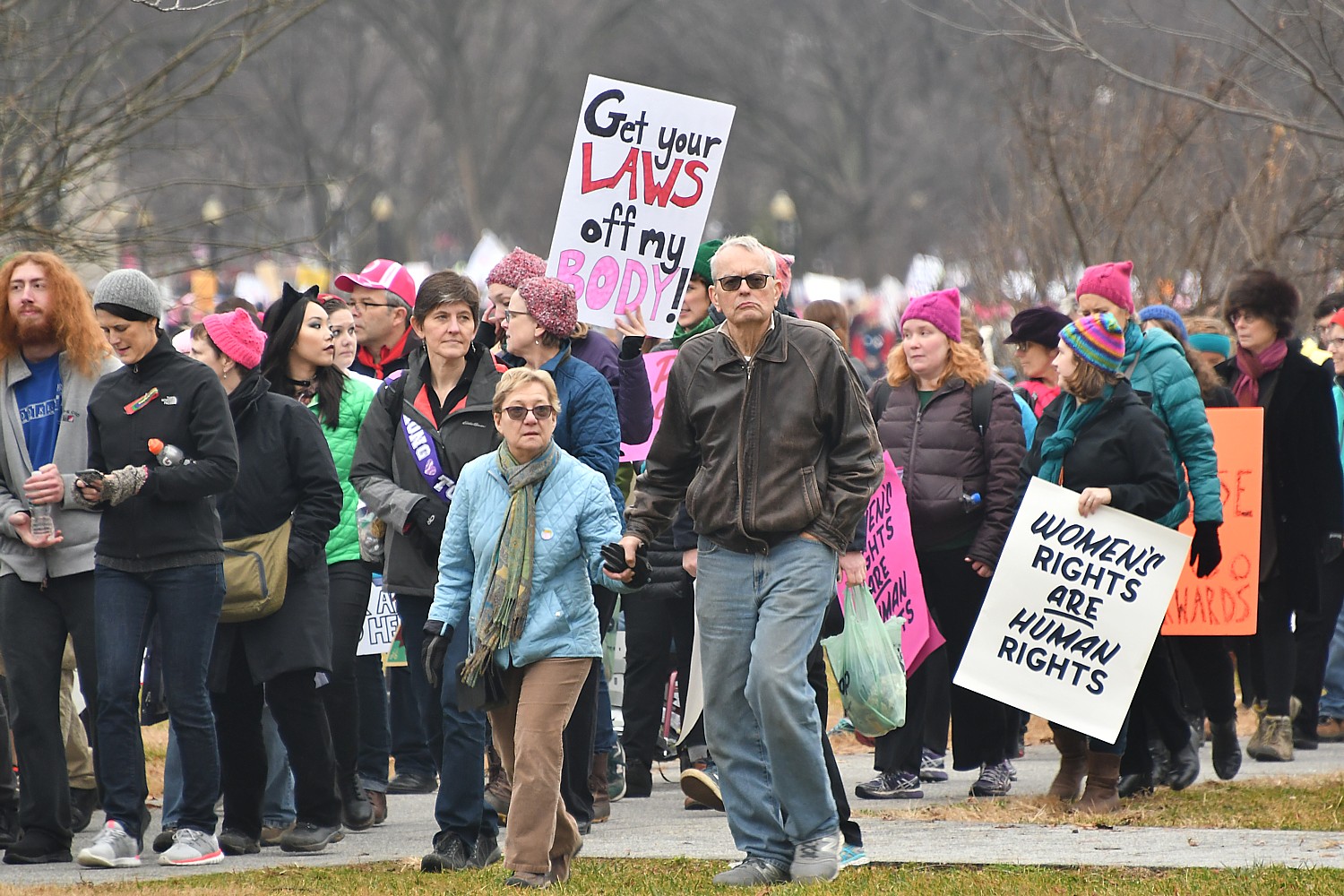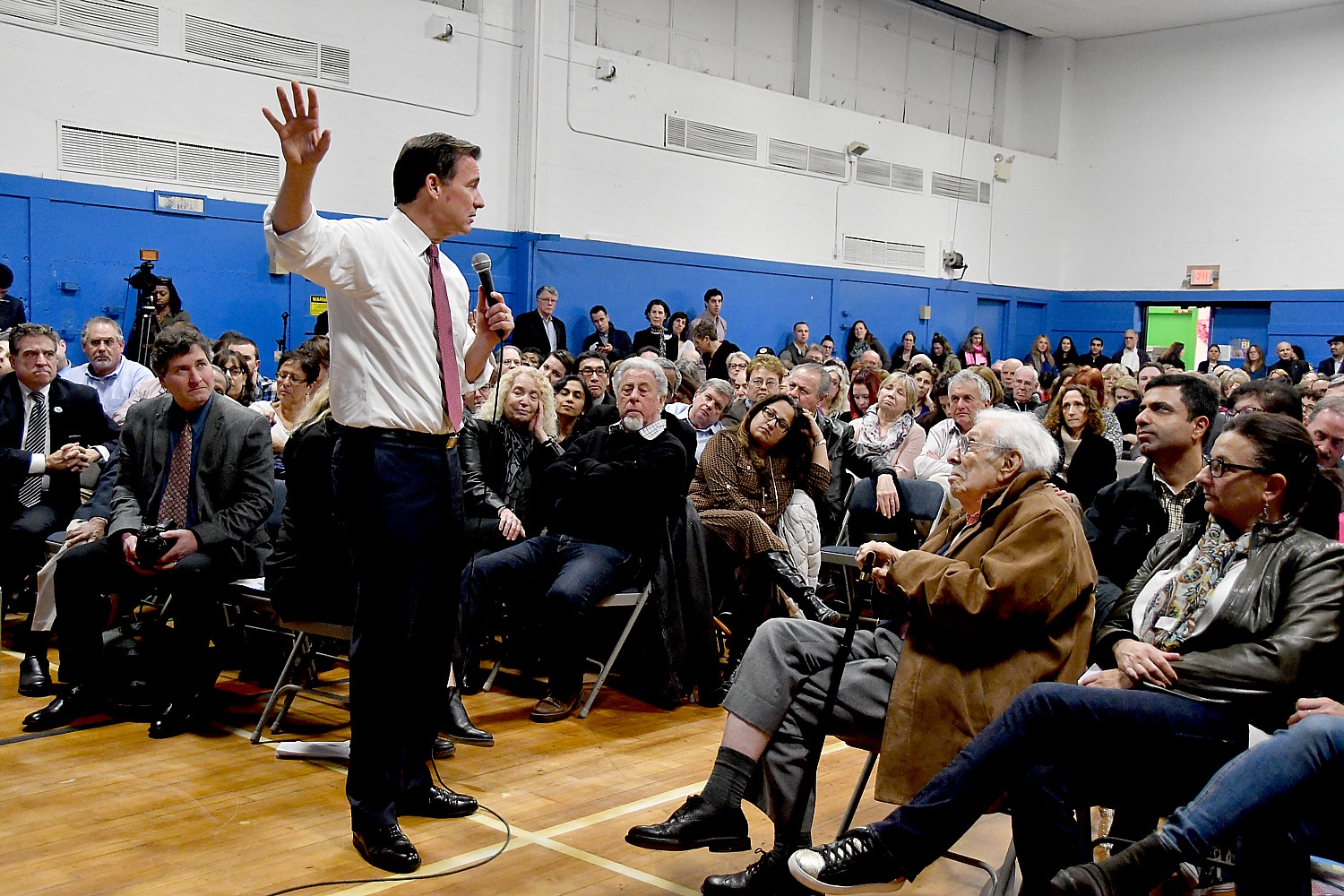
On Human Rights Day 2024, the White House issued this fact sheet highlighting the Biden-Harris administration’s global human rights accomplishments:
Over the last four years, President Biden and Vice President Harris have taken action to uphold universal human rights around the world. From protecting brave individuals defending life and liberty to securing some of the largest political prisoner releases in recent history, to holding account those who misuse technologies like commercial spyware for human rights violations and abuses, the Biden-Harris Administration has worked to support human rights defenders, civil society and journalists. Three historic Summits for Democracy generated millions of dollars in commitments from the U.S., international partners, and the private sector to support civil society and investments in democratic renewal. Through our engagement in multilateral organizations, we have held countries that have violated human rights to account, advanced the status of women and girls, and safeguarded protection for LGBTQI+ human rights defenders. The United States is strongest when we protect people fighting for justice for all at home and abroad through these actions:
Protected Human Rights Defenders and Secured the Release of Political Prisoners
- Advocated for the Release of Unjustly Detained Individuals Globally. The U.S. raised international awareness of the plight of political prisoners and their families and advocated for the release of all unjustly detained individuals worldwide. Notable accomplishments included: working with international partners to secure the release of 16 unjustly detained prisoners held by the Russian government, including four Americans, in the largest prisoner swap since the Cold War and securing the release of 357 Nicaraguan political prisoners, including human rights defenders and Catholic leaders.
- Empowered Journalists, Civil Society, Workers, and Reform-Minded Leaders. The Department of State protected journalists and promoted media freedom through the Journalism Protection Platform and joint efforts with UNESCO, provided direct financial support to almost 900 civil society organization (CSOs) in 86 countries through the Lifeline: Embattled CSOs Assistance Fund since 2021; promoted inclusive labor markets and protecting the rights of all workers in line with the Presidential Memorandum on Advancing Worker Empowerment, Rights, and High Labor Standards Globally, worked with partners to equip young leaders with essential skills, such as through the Community of Democracies’ Youth Democracy Network; and elevated the voices of Indigenous youth into global civic conversations by establishing the Indigenous Youth Leadership Coalition.
- Supported Local Human Rights Defenders and Organizations through USAID’s Powered by the People (PxP) Award. In 2024, USAID channeled over $2.5 million to human rights defenders, and organizations protecting and promoting human rights across 28 countries. This included providing rapid relocation, emergency legal assistance, digital security, psychosocial support, and a global help desk.
- Sustained Support to Human Rights Defenders in Ukraine. The U.S. continued to support human rights defenders working to promote human rights and fundamental freedoms around the world. For example, since the start of the war, USAID has helped more than 50 civil society organizations, including the Ukrainian Center for Civil Liberties (CCL), which documented possible Russian crimes against Ukrainian civilians. In recognition of this work, CCL was awarded the Nobel Peace Prize in 2022.
- Strengthened Civilian Protection. The State Department elevated human rights considerations in security decisions and partnerships, including U.S. arms transfers and security trainings, to higher standards through efforts such as the Civilian Harm Incident Response Guidance (CHIRG).
- Expanded Human Rights Programming. In 2024, USAID provided $19.25 million 19 Missions to support human rights defenders and address human rights violations and abuses, combat digital repression and cyber threats faced by HRDs, enhance protection of environmental rights defenders, combat Gender-Based Violence (GBV) and trafficking in persons, support access to justice for victims of human rights violations, and support comprehensive programming to enable persons with disabilities to understand and realize their rights. In 2024, USAID’s Justice, Human Rights, and Security Rapid Response Award supported 20 USAID Missions nearly $7 million for rapid response activities to meet urgent crises.
- Worked to protect Human Rights Online. Outlined best practices and actions that online platforms can take to implement for robust support for human rights defenders under threat through the Guidance for Online Platforms on Protecting Human Rights Defenders Online.
Mobilized Action to Address the Misuse of Commercial Spyware
- Protected Against Commercial Spyware Misuse. The Biden-Harris Administration advanced a whole-of-government approach to curb the misuse and proliferation of commercial spyware. The President’s Executive Order set standards and safeguards for the domestic government use of these commercial surveillance tools, while the novel application of visa restrictions—including dozens of new designations announced this week, financial sanctions, and trade restrictions has discouraged commercial spyware companies from targeting U.S. citizens or undermining human rights globally. The Administration has successfully internationalized this pioneering effort through the Joint Statement on Efforts to Counter the Proliferation and Misuse of Commercial Spyware, now endorsed by 22 countries with this week’s formal addition of Latvia. The U.S. has also driven global consensus through language in the Human Rights Council resolution on the Promotion, protection and enjoyment of human rights on the Internet, which for the first time recognizes the threat commercial spyware misuse poses to democratic values and the exercise of human rights. The United States has committed $3 million in programming for capacity building, research, and advocacy for the private sector, academia, and government partners.
Upheld Human Rights and Accountability
- Expanded Tools for Accountability.
- To date this year, the U.S. Department of the Treasury designated more than 100 individuals and entities associated with human rights abuse across more than 20 jurisdictions. These actions targeted an array of activities, including national and transnational repression, forced disappearances and hostage taking, gender-based violence, forced labor and human trafficking, and human rights abuses perpetrated by terrorist groups and criminal organizations.
- The State Department publicly designated over 80 officials for their involvement in gross violations of human rights, sanctioning over 240 individuals and entities for serious human rights abuses under the Global Magnitsky Sanctions Program, and taking steps to impose visa restrictions on over 8,000 individuals for undermining democracy, repressing marginalized groups, transnational repression, and other activity adverse to U.S. interests, including additional actions announced today.
- The State Department also released business advisories to highlight the legal, financial, and reputational risks posed to businesses, including those operating in Russia and Russia-occupied territories of Ukraine, and Hong Kong.
- To date this year, the U.S. Department of the Treasury designated more than 100 individuals and entities associated with human rights abuse across more than 20 jurisdictions. These actions targeted an array of activities, including national and transnational repression, forced disappearances and hostage taking, gender-based violence, forced labor and human trafficking, and human rights abuses perpetrated by terrorist groups and criminal organizations.
- Fought Political Repression. The U.S. Department of the Treasury’s Office of Foreign Assets Control (OFAC) worked to target political repression in 2024 through related actions in Georgia, Iran, Burma, Nicaragua, Venezuela, and Zimbabwe. OFAC designated an international assassination network led by a narcotrafficker operating at the behest of the Iranian government in January and, in March, the designation of a commercial spyware consortium that distributed spyware technology that was used to target Americans.
- Reduced Human Trafficking and Forced Labor. OFAC focused on actions to disrupt human trafficking and forced labor throughout 2024, including actions targeting the Venezuela-based criminal organization; a Syria-based narco-trafficker also under legal prosecution for human trafficking; and a Cambodian businessman and four companies he owns for forced labor in online virtual currency investment cyber scam centers.
- Administered International Justice.
- The U.S. Department of Justice (DOJ) secured historic sentences in three high profile cases this year concerning human rights violations in Iraq, Ethiopia, and Croatia. In addition, the Department charged three individuals with fraud related to their alleged participation in human rights violations in Rwanda, Syria, and Bosnia.
- On December 9, 2024, DOJ unsealed an indictment in the Northern District of Illinois charging two high-ranking Syrian officials under former President Bashar al-Assad with war crimes. The indictment charges the former Syrian intelligence officials with engaging in a conspiracy to commit cruel and inhuman treatment of civilian detainees, including U.S. citizens, during the course of the Syrian civil war.
- On December 5, 2023, following a joint FBI-HSI investigation, DOJ indicted four persons affiliated with the Russian military for war crimes. The defendants allegedly interrogated, severely beat, and tortured a U.S. national during Russia’s full-scale invasion of Ukraine. The Office of the U.S. Attorney for the Eastern District of Virginia initiated the case, the first such indictment since the amendment of the War Crimes Act.
- Empowered Human Rights and Defense. U.S. Southern Command (USSOUTHCOM) dedicated Human Rights Office continued human rights training and education for partner forces, the implementation of civil-military dialogues including the human rights NGO community, and the integration of human rights considerations into Command exercises.
- Provided Human Rights and Law of Armed Conflict Training. The Defense Institute of International Legal Studies (DIILS) provided Human Rights and Law of Armed Conflict training to foreign security partner forces that receive resources and support pursuant to 10 U.S.C. Sec. 333. Over the last year, DIILS faculty conducted numerous advanced-level trainings across dozens of countries and resident courses on a variety of legal topics attended by participants from over 70 countries.
Bolstered Atrocity Prevention and Response
- Issued a National Atrocity Prevention and Response Strategy. The U.S. Government takes timely and effective action to anticipate, prevent, and respond to atrocities, in coordination with partner governments, and international, civil society, and local partners. The White House-led Atrocity Prevention Task Force coordinates these efforts and the United States Strategy to Anticipate, Prevent, and Respond to Atrocities was launched in 2022 to achieve impact through concerted action in countries at risk of atrocities.
- Documented Atrocity Risk. This year’s Elie Wiesel Act Report reflects several Administration priorities. As part of ongoing work to incorporate women’s rights and inclusion into atrocity prevention efforts, the report incorporates gender-based violence as a potential early warning sign of atrocities and reinforces that conflict-related sexual violence should never be considered an inevitable result of armed conflict. The report also notes U.S. leadership in training on how to address atrocity risk and critical documentation work through the Conflict Observatory program.
Engaged Multilateral Institutions to Hold Countries to Account
- Re-Engaged with the UN Human Rights System. The United States rejoined the UN Human Rights Council in 2021 to highlight and address pressing human rights concerns and to uphold the universal values, aspirations, and principles that have underpinned the UN system since its founding. We also issued a standing invitation to all UN thematic human rights monitors to visit the U.S. and assess our human rights record at home.
- Called Attention to Concerning Human Rights Situations. U.S. leadership led to the establishment of mechanisms through the UN Human Rights Council to investigate human rights violations and abuses in situations around the world, including Ethiopia, Nicaragua, Iran, Russia, Sudan, and Ukraine.
- Kept Human Rights Violators Off UN Bodies. The U.S. led successful efforts to remove Iran from the Commission on the Status of Women and deprive Russia of a seat on the Human Rights Council.
- Aided Human Rights Integration in Haiti. U.S. support for the Multinational Security mission (MSS) has been critical in responding to the crisis in Haiti. The MSS and the Office of the United Nations High Commissioner for Human Rights established a partnership focused on integrating human rights into security operations since the deployment of the MSS to Haiti.
- Supported Intersex Persons. The U.S. supported the first-ever UN resolution on combatting discrimination, violence, and harmful practices against intersex persons, raising the credibility and influence of intersex advocates and their allies and meaningfully updating how gender is understood in the UN’s work.
Addressed Threats Posed by Transnational Repression
- Combatted Transnational Repression. The United States worked with multilateral partners to raise awareness, counter the threat, and promote accountability for acts of transnational repression (TNR) —by leading a working group on transnational repression under the G7 Rapid Response Mechanism, aiming to raise international awareness of the threat TNR poses, affirming our shared commitment to countering the threat, and sharing best practices and lessons learned. We delivered a statement on behalf of more than 45 countries at the 56th Session of the Human Rights Council to address the urgent and growing threat of transnational repression, and announced the Khashoggi Ban, a policy restricting those engaged in TNR from obtaining U.S. visas and traveling to the United States.
Prevented and Responded to Gender-Based Violence
- Preventing and Responding to Gender-Based Violence Globally. Over the last two fiscal years, the United States maintained the highest-ever level of investment—$250 million—to address gender-based violence globally. This work is guided by the U.S. Strategy to Prevent and Respond to Gender-Based Violence Globally. In the third and most recent iteration of the Strategy released in 2022, the Biden-Harris Administration is taking decisive action to further our commitment to prevent and respond to gender-based violence globally through programming, policy, and diplomatic efforts. The Strategy also made updates to address 21st century threats, such as online harassment and abuse, and the ways in which climate change exacerbates the risk of gender-based violence.
- Promoted Accountability for Conflict-Related Sexual Violence. President Biden issued a historic Memorandum on Promoting Accountability for Conflict-Related Sexual Violence in November 2022 directing federal agencies to marshal sanctions authorities to promote justice and accountability specifically for conflict-related sexual violence. The Administration has since issued nearly two dozen sanctions against perpetrators of conflict-related sexual violence around the globe. This year included a designation of five armed groups and their leaders in the Democratic Republic of the Congo implicated in sexual violence; two designations in Haiti, one of a former member of Parliament and one of a gang leader responsible for gender-based attacks; an action targeting a Rapid Support Forces commander in Sudan who for CRSV; and sanctions against three former government of Uzbekistan officials for sex trafficking and sexual abuse of minors at a state-run orphanage.
- Supported Documentation of Sexual Violence. In June, Vice President Harris launched the Dignity in Documentation Initiative, which provides support for survivor- and civil society-led efforts to investigate and document CRSV in line with the Murad Code, named for Nobel Laureate and survivor Nadia Murad. Today, we are proud to announce additional aligned commitments to the initiative, including $8 million from the Department of State and $4 million from USAID for a total of over $22 million committed to this work.
- Countered Technology-Facilitated Gender-Based Violence. By founding and co-leading the 14-country Global Partnership for Action on Gender-Based Online Harassment and Abuse, the Administration has advanced global policies to address online safety for women and girls by shaping a range of multilateral policy instruments tackling online harms through the G7, G20, APEC, and UN. The Administration has also invested at least $15 million in targeted funding to prevent and respond to technology-facilitated gender-based violence.
- Advanced Women, Peace, and Security. The United States is committed to addressing the root causes of violence and conflict as a top national security priority. In 2023, the United States issued a U.S. Strategy and National Action Plan on Women, Peace and Security, which is currently being implemented by the Department of Defense (DOD), USAID, the Department of State, and the Department of Homeland Security. For example, DOD has engaged in Women, Peace, and Security-focused security cooperation activities with Allies and partners to ensure meaningful participation of women in decision making and ensure that crisis and conflict operations do not negatively impact the protection of civilians or their equitable access to relief and recovery resources.
- Defended the Rights of Women and Girls. In October 2022 and February 2023, Secretary Blinken announced a new visa restriction policy under Section 212(a)(3)(C) of the Immigration and Nationality Act (“3C”) to restrict the issuance of visas for current or former Taliban members, members of non-state security groups, and other individuals believed to be responsible for, or complicit in, repressing women and girls in Afghanistan through restrictive policies and violence. In December 2023, the U.S. designated two individuals under the Global Magnitsky Sanctions Program for repressing women and girls in Afghanistan, including restricting their access to secondary education. The U.S. remains unwavering in our commitment to support the Afghan people, especially Afghan women and girls, in their struggle for an inclusive, stable, peaceful Afghanistan.
Combatted Hate-fueled Violence
- Launched Global Guidelines for Countering Antisemitism. The U.S. led “Global Guidelines for Countering Antisemitism,” represent a set of international best practices for effective public policy against antisemitism. This landmark global effort has been endorsed by 42 countries and multilateral organizations since its introduction in Buenos Aires in July 2024. The United States continues to demonstrate global leadership through ongoing efforts to expand endorsements and deepen adherence.
- Protected LGBTQI+ persons in Uganda. In December 2023, As directed by President Biden, the United States released a fact sheet outlining actions taken to address threats posed by democratic backsliding in Uganda, promote accountability for human rights abuses, and curtail direct assistance to the government.
- Advanced Racial Equity and Justice Globally. The United States has partnered with governments and international organizations to combat systemic racism, discrimination, violence, and xenophobia globally, including through the UN Permanent Forum on People of African Descent and the UN Permanent Forum on Indigenous Issues.
- Expanded International Disability Rights. The President reestablished the role of Special Advisor on International Disability Rights at the Department of State and actively supported the first-ever G7 Ministerial on Inclusion and Disability in Italy in October of this year, where global leaders discussed disability rights issues related to independent living, artificial intelligence (AI), humanitarian response and emergency management, and sports.
Supported and Sustained Democracy
- Inaugurated the Summit for Democracy. President Biden launched the historic Summit for Democracy in 2021 to strengthen democratic institutions, protect human rights, and accelerate the fight against corruption, both at home and abroad. Under President Biden’s leadership, the United States has taken concrete steps to advance previous commitments and initiatives launched over the past three years in the areas of advancing technology for democracy, media freedom, countering the misuse of technology, and improving financial transparency, gender equity and equality, and rule of law.
- Fought Anti-Corruption Globally. The Biden-Harris Administration established countering corruption as a “core U.S. national security interest,” and issued the first-ever United States Strategy on Countering Corruption. Since then, the United States has taken action at home and around the world to curb illicit finance, hold corrupt actors accountable, forge multilateral partnerships, and equip frontline leaders to take on transnational corruption.
- Surged Support to Countries experiencing Democratic Openings. In 2024, USAID’s Partnership for Democratic Development (PDD) advanced gender issues and women’s rights across its funded portfolio of programs to improve women’s engagement with and access to municipal services.
- Elevated Technology and Democracy: The Biden-Harris Administration set high standards for the government use of surveillance technologies, including AI and commercial spyware; expanded support for internet freedom technologies and cybersecurity that is essential to human rights defenders; and has used accountability measures, export controls, and voluntary commitments to enlist the private sector to combat authoritarian use of technology. Through the Declaration for the Future of the Internet, endorsed by over sixties countries, and as chair of the Freedom Online Coalition, the Administration strengthened the global commitment to a free and open internet.
- Underscored that respect for human rights is the foundation of safe, secure, and trustworthy Artificial Intelligence, the United States signed the Council of Europe’s Framework Convention on AI and Human Rights, Democracy, and the Rule of Law.
- The Administration developed a Joint Statement on Responsible Government Practices for AI Technologies, to which the 41 countries of the Freedom Online Coalition committed.
- The U.S. government launched the Export Control and Human Rights Initiative under which 26 countries have subscribed to a Code of Conduct by which subscribing states commit to apply export controls to prevent the proliferation of goods, software, and technologies that enable serious human rights abuses.
- The Administration implemented more than $12 million for programs utilizing AI as a tool to advance democracy, promote human rights and labor rights, and foster justice and accountability.
- In March, President Biden issued an Executive Order on the Safe, Secure, and Trustworthy Development and Use of Artificial Intelligence in part to ensure that technology is developed, deployed, and governed consistent with universal human rights, the rule of law, and appropriate legal authorization, safeguards, and oversight, such that it supports, and does not undermine, democracy, civil rights and civil liberties, and public safety.
- Underscored that respect for human rights is the foundation of safe, secure, and trustworthy Artificial Intelligence, the United States signed the Council of Europe’s Framework Convention on AI and Human Rights, Democracy, and the Rule of Law.
- Supported Public Interest Media. In 2024, USAID gave a grant to the International Fund for Public Interest Media (IFPIM) for core operation support to 16 public interest media outlets to investigate corruption and violations of human rights in Asia and the Pacific, Africa and the Middle East, Eastern Europe, and Latin America and the Caribbean, including media outlets operating in exile. This support allows organizations to continue their operations and sustain content production to ensure continued access to high-quality journalism. Since 2022, IFPIM has made 45 grants in 22 countries and territories that cumulatively represent more than $15 million in direct funding and support.
- Advanced Responsible Business Practices. Earlier this year, the Biden Administration released the United States’ second National Action Plan on Responsible Business Conduct, which compiled commitments to promote business practices and supply chains around that world that respect human rights, good governance, and labor standards. The National Action Plan has:
- Brought stakeholder voices to the table through a new Federal Advisory Committee on Responsible Business Conduct, which held its first public meeting on November 14 and will provide ongoing recommendations and consultation to strengthen the U.S. approach to business and human rights.
- Supported businesses to advance human and labor rights due diligence by providing new guidance and resources, including a Labor Rights InfoHub.
- Promoted access to remedy and protected stakeholders from retaliation in U.S.-supported development finance projects.
- Brought stakeholder voices to the table through a new Federal Advisory Committee on Responsible Business Conduct, which held its first public meeting on November 14 and will provide ongoing recommendations and consultation to strengthen the U.S. approach to business and human rights.
- Combatted Industry Labor Abuses. In June 2022, President Biden signed the historic National Security Memorandum on Combating Illegal, Unreported, and Unregulated Fishing and Associated Labor Abuses (NSM-11), directing agencies to put their authorities to work to tackle the problem of IUU fishing and associated labor abuses in the seafood supply chain. IUU fishing can take many forms, ranging from the small-scale misreporting of catch, to large-scale, coordinated efforts by transnational crime syndicates that may also involve forced labor and other human rights abuses.

